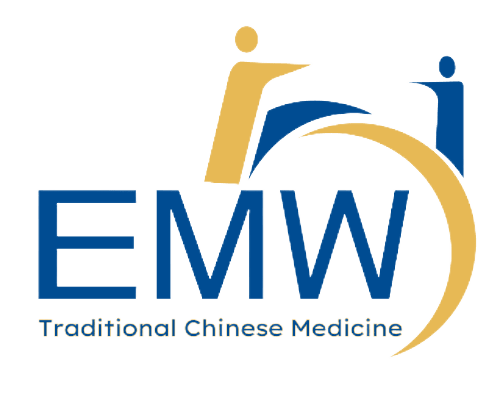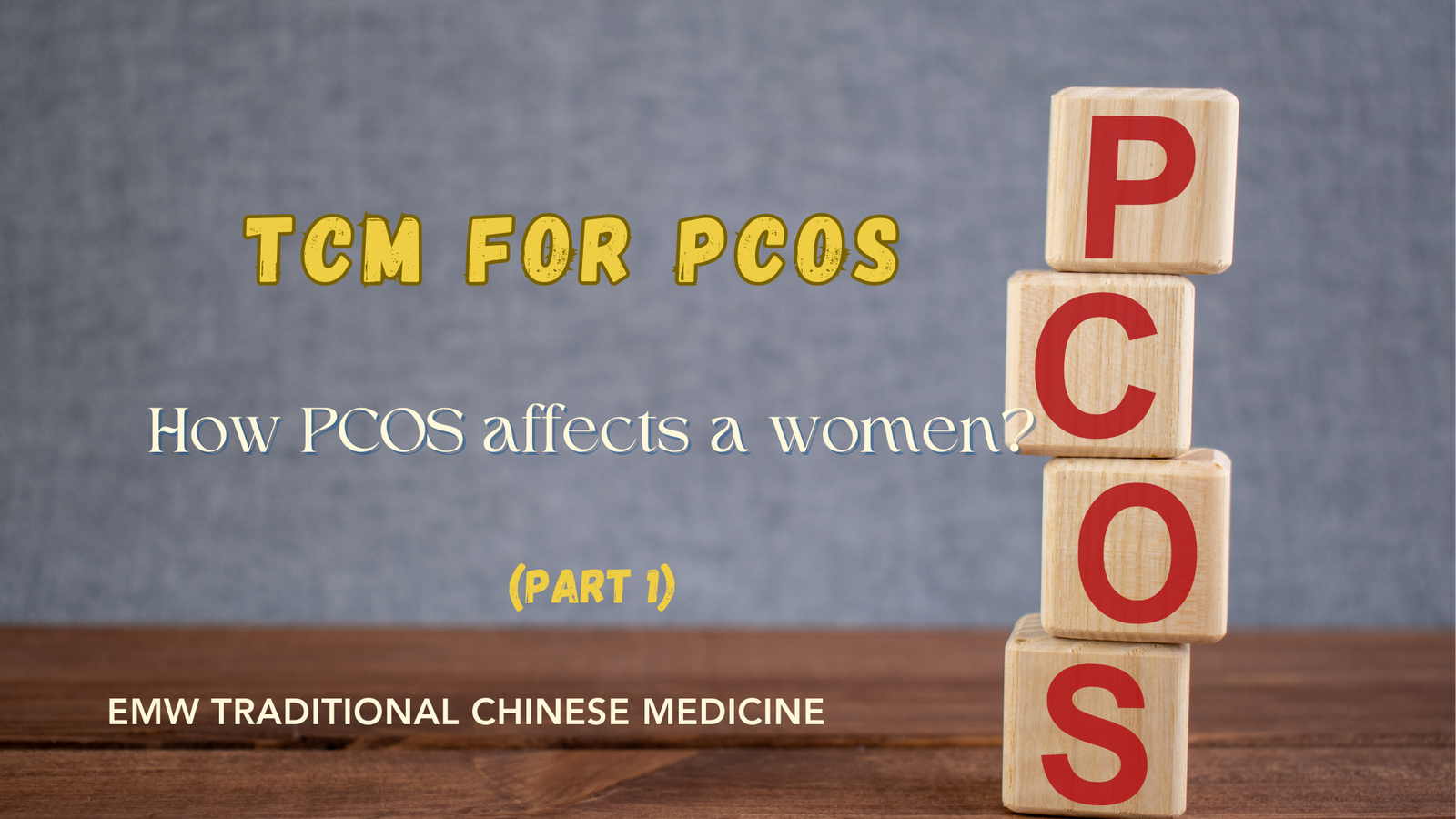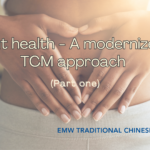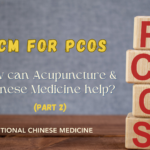What is PCOS?
Polycystic ovary syndrome (PCOS) is a common endocrine condition affecting an estimated 10% of women of reproductive age and TCM has been shown to be effective in treating it. There is a common misconception in PCOS that you have cysts on your ovaries. This is not the case – in fact, you have many small, fluid-filled sacs (follicles) that grow inside the ovaries. This affects how your ovaries work because these harmless follicles are underdeveloped and often fail to release an egg, which means ovulation does not occur.
Three main features generally characterise PCOS:
• Irregular periods. The ovaries do not ovulate regularly.
• Elevated androgen levels. The ovaries produce more “male” hormones than normal, which may lead to physical signs such as excessive hair growth.
• Polycystic ovaries. The ovaries contain at least 12 follicles.
If you have 2 or more of these features, you may be diagnosed with PCOS. However, it is difficult to know for certain how many women have PCOS because many of them may not have any symptoms.

Most women with PCOS experience symptoms in their late teens to early 20s. Symptoms of PCOS may vary from mild to severe, and they may change over the years. Sometimes, PCOS is not noticed until a woman sees her doctor because she is having trouble getting pregnant.
Main symptoms include:
• Irregular periods, light periods or no periods at all
• Difficulty getting pregnant (infertility)
• Excessive hair growth (hirsutism), often on the face, around the nipples and along the line down from the belly button
• Oily skin or acne that may persist beyond normal teenage years
• Weight gain or difficulty losing weight
• Thinning or hair loss
• Dark skin patches in the armpit or around the groin or neck
• Anxiety, depression, mood swings and low self-esteem
PCOS is also associated with an increased risk of developing serious health problems, such as type 2 diabetes and heart disease, and the risk increases with age.

What causes PCOS?
The exact cause of PCOS is not clear. There are likely several factors involved.
• Hereditary. PCOS often runs in families.
• Insulin resistance. Up to 70% of women with PCOS have insulin resistance. It is a condition in which the body does not respond well to insulin, leading to problems with the cells’ ability to use insulin effectively. When cells cannot use insulin properly, the body’s demand for insulin increases. More insulin is then produced to keep blood sugar normal. Extra insulin causes increased production and activity of testosterone (T).
• Weight. Being overweight or obese also leads to an increase in insulin production by the body.
How does PCOS affect fertility?
Women with PCOS experience fertility problems because they do not release an egg, or ovulate, regularly but TCM has shown to be quite effective in rectifying this issue. Without regular ovulation, periods become irregular. It is hard for them to know when they are ovulating, it is hard to time intercourse, and all this will decrease the chances of getting pregnant.
Imbalances in reproductive hormones such as oestrogen, progesterone, follicle-stimulating hormone (FSH) and luteinising hormone (LH) can have a negative impact on ovulation. In PCOS women, it is typical to have an elevated level of androgens, along with an elevated LH to FSH ratio. These hormonal imbalances cause follicles to develop too quickly and then shut down prematurely before they can produce eggs or eggs of good quality, making it harder to get pregnant or may lead to miscarriage.

What are the treatment options for PCOS?
There is no known cure for PCOS, unfortunately, and it is a long-term condition that does not go away on its own. However, symptoms can be managed and some of the medical conditions that co-occur with PCOS, such as infertility and obesity, should be treated regardless of PCOS diagnosis. Long-term management of PCOS is very important as many women with PCOS continue to have high levels of androgens and insulin resistance even after menopause, leading to lifelong health risks such as type 2 diabetes and cardiovascular disease.
• Lifestyle interventions. It is considered the first management step as obesity worsens the presentation of the symptoms of PCOS. It consists of changes in diet, exercise and behavioural interventions designed to improve weight.
• Medical interventions. Combined contraceptives (COCs) are effective at restoring normal hormone balance, regulating ovulation/menstrual cycle, alleviating symptoms like excess hair growth and acne, and preventing endometrial cancer. Metformin (insulin-sensitising agent), when used in conjunction with COCs and/or lifestyle changes, has been shown to improve menstrual cycles, hyperandrogenism, as well as insulin resistance, particularly in overweight or obese women with PCOS. Letrozole and clomiphene citrate (Clomid) are used to induce ovulation in PCOS patients to improve reproductive outcomes.
• Surgical interventions. Surgical interventions can sometimes alleviate PCOS symptoms. Laparoscopic ovarian drilling may be a viable treatment option for patients with PCOS-related fertility issues who do not respond to medication.
• Assisted reproductive technology (ART). ART, primarily in-vitro fertilisation (IVF) and intracytoplasmic sperm injection (ICSI), can play a role in PCOS if patients have failed to respond to ovulation induction medications or if there are other indications such as tubal blockage or male factor infertility.
How TCM views PCOS
Kidney, Spleen, Liver
According to the modern TCM theory, it is hypothesised that the main mechanism of PCOS is the dysfunction of three major organs — the Kidney, Liver and Spleen. Moreover, due to the late or absence of periods as main complaints, TCM recognises and differentiates PCOS to be the consequence of several patterns of disharmony, including Kidney Yang deficiency, phlegm-damp accumulation, and Qi and blood stagnation. Women may fall into one of the following patterns or exhibit symptoms from a combination.
Kidney Yang Deficiency
The Kidney in TCM is the organ system that governs one’s growth and development as well as reproduction. It is often regarded with a hereditary or genetic disorder. Kidney Yang deficiency is considered the root cause of PCOS where patients usually present with metabolic complications and fertility issues. Chronic diseases, excessive sexual and physical activities, excessive intake of cold and raw foods and drinks, and overexposure to cold and wet climates and environments are some common causes of Kidney Yang deficiency. PCOS patients with this pattern often have symptoms such as thin menstrual blood, infertility, lower backache, cold intolerance, fatigue, depression and decreased libido.

Phlegm-Damp Accumulation
The Spleen is in charge of the transformation and transportation of body fluids, while Kidney Yang helps to keep the Spleen warm to ensure its proper function. Therefore, Yang deficiency in the Kidney can cause dysfunction in the Spleen, impacting the body’s ability to transform and transport fluids, leading to the formation and accumulation of phlegm-damp. This can be aggravated by prolonged exposure to a cold and damp environment, diets rich in sugars, fats, ice drinks, junk food and cold raw foods, emotional stress, chronic diseases and mental exertion in PCOS patients. Women with symptoms like scanty and thick menstrual blood, excessive vaginal discharge, dizziness, chest tightness, overweight, acne and excessive hair growth, are usually classified as having phlegm-damp accumulation patterns.
Qi and Blood Stagnation
The Liver is responsible for overall Qi circulation of the body and it also stores the blood. Prolonged or intense emotional stress, including worry, stress, depression and restlessness, impairs the Liver and disturbs the Qi and blood circulation, leading to Qi and blood stagnation. This results in impeded menstrual flow, clots in the menstrual blood, painful periods, sore breast before periods, PMS, mood swings and bloating or abdominal masses.

How can TCM help with PCOS?
TCM and acupuncture have been shown to be effective in treating pcos. For both Western and Chinese medicine, lifestyle interventions are considered to be the first step in managing PCOS patients. It entails dietary adjustments, physical activity modifications and behavioural interventions to reduce weight. In addition, TCM uses Chinese herbal medicines (CHMs), acupuncture and moxibustion to treat hormonal abnormalities and metabolic complications by addressing the underlying imbalance of PCOS patients, as well as by correcting the body’s constitution, patterns of disharmony and related symptoms altogether. CHMs and acupuncture/moxibustion have a long history of use for PCOS and other gynaecological diseases. Related research and clinical studies have increased tremendously in the past 20 years, and the efficacy has been proven with fewer side effects.
TCM CHMs and Acupuncture/Moxibustion for PCOS — Hormonal Abnormalities and Infertility
For women with PCOS who are trying to conceive naturally or considering IVF, you may benefit from TCM treatments over a period of 3 to 6 months in improving your ovulation and menstrual cycle regularities, ovarian function and egg quality.
Clinical studies have shown that:
- Acupuncture lowers elevated levels of T and LH, resulting in a higher ovulation frequency in lean/overweight women with PCOS.[1]
- Combined treatment of CHMs and electroacupuncture (EA) significantly improves the menstrual cycle, reduces body weight and levels of LH, LH/follicles stimulating hormone (FSH), total T, anti-müllerian hormone (AMH), and improves ovulation and pregnancy rates, all while causing no adverse effects. [2]
- Combined treatment of acupuncture and moxibustion with basic treatments effectively increases pregnancy and ovulation rates, reduces miscarriage rates, and improves the levels of sex hormones and metabolic indicators among patients with PCOS, with good safety.[3]
For those women undergoing IVF, it is common to have an abundance of eggs but of a lower quality, and a higher risk of developing ovarian hyperstimulation syndrome (OHSS). TCM treatments given during the stimulation phase may also help to improve the ovarian and follicular environment by maintaining stable levels of sexual hormones while reducing the risk of OHSS.
TCM treatments during the embryo transfer cycle focus on enhancing blood flow to the uterus, uterine lining quality and receptivity, as well as lowering stress hormones that may interfere with implantation.
Clinical studies have shown that:
- EA improves clinical pregnancy rate with the overall adjustment of the local micro-environment of the ovary and the improvement of oocyte quality.[4]
- Combined treatment of EA and moxibustion with western medication effectively improves endometrial receptivity, increases clinical pregnancy rate and reduces the early abortion rate in patients with PCOS.[5]

Diet & Lifestyle Tips
As PCOS is closely linked to metabolic disorders such as obesity and insulin resistance, dietary and lifestyle modifications are proven to be an essential part of managing your PCOS by regulating your blood sugar levels and balancing your hormone[1]. Besides working with a TCM physician for your particular diagnosis and incorporating CHMs and acupuncture/moxibustion into your regime, keeping an active lifestyle, a healthy diet and a well mental state can also help rebalance your body.
Dietary suggestions:
- Eat regularly. Regular meal times or eating every 3 to 4 hours stabilises blood sugar levels and promotes weight loss.
- Choose low glycemic index (GI) carbohydrates and whole grains. GI is a scale that measures how quickly carbohydrate-containing foods raise blood glucose levels. Low GI foods are broken down more slowly and cause a gradual rise in blood sugar levels. They can curb blood sugar spikes, reduce insulin resistance and lower the risk of diabetes. Low GI carbs and whole grains include barley, buckwheat, black rice, rolled oats, bulgur, rye, quinoa, and legumes (black beans, red beans, mung beans, chickpeas, yellow lentils, etc).
- Have balanced meals. Balance each of your meals by including protein-rich foods (meat, fish, eggs, beans, pulses, tofu, nuts and seeds), healthy fats (olive oil, nuts and seeds, rapeseed oil, and avocados), and low GI fruits (citrus, berries, apples, pears, etc) or non-starchy vegetables (carrots, mushrooms, onions, aubergine, radish, etc), in addition to low GI carbs. This helps you stay fuller for a longer period and suppresses cravings.
- Include leafy greens. Include 2 servings of leafy greens every day. Leafy greens contain indole-3 carbinol (I3C), which helps to regulate liver function which is essential for the metabolism of hormones and glucose. Leafy greens include kale, broccoli, lettuce, bok choy, cabbage, etc.
- Include omega-3 fats. Omega-3 fats help lower inflammation responses in the body which are commonly seen in those with PCOS. Omega-3 fats-rich foods include walnuts, chia and flaxseeds, seaweed, algae, soybean oil, salmon, mackerel, etc.
Avoid:
- Refined carbohydrates. Refined carbs impair glucose metabolism. They have a high GI and are digested quickly, leading to rapid spikes in blood sugar and insulin levels after meals. Refined carbs include white sugars, white flour, whole wheat flour and products made from them (pasta, bread, desserts, etc).
- Milk and dairy products. They are considered damp and phlegm-producing foods according to TCM theory. The same goes for cold and raw drinks and foods (yes, too many salads are bad for you!), greasy and fried foods, processed carbs and sugars, and alcohol. They impair the function of the Spleen and may exacerbate the symptoms of PCOS.
- Sodas, fruit juice and energy drinks. They raise blood glucose levels rapidly, leading to tiredness and increased hunger, contributing to increased weight gain.
Other tips
- Engage in moderate exercises. For at least 30 min per day, at least five days a week. Moderate exercises include yoga, pilates, brisk walking, etc. Physical activities have shown to be able to reverse diabetes and improve insulin sensitivity as well as help with weight control.
- Give up smoking and drinking. Smoking and drinking can potentially increase both metabolic syndrome and elevated androgen levels in women with PCOS.
- Include stress management tools. Women with PCOS often have chronic inflammation throughout the body, which is associated with high cortisol levels. A high cortisol level in the body exacerbates stress and depression and increases the risk of developing insulin resistance. Practising meditation, breathing techniques and regular exercise help to lower cortisol levels if you find yourself stressed or frustrated regularly.
Contact us to make an appointment if you have been diagnosed with PCOS or have problems with ovulation and conceiving.






